There has been much speculation about the precise location of and inspiration for the fictitious resort of Royale-les-Eaux, which features in two of Ian Fleming’s James Bond novels, Casino Royale and On Her Majesty’s Secret Service.
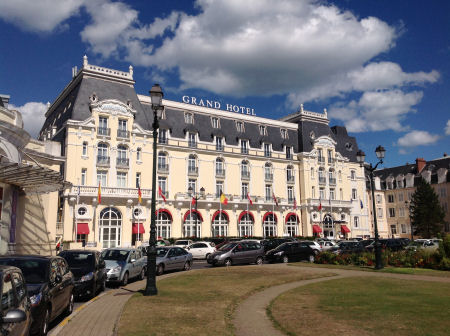
Casino Royale, the book that introduced Bond to the world, is deliberately or otherwise fairly obscure about Royale’s location. The following quotes are from Ch.5 of the book.
‘Royale-les-Eaux, which lies near the mouth of the Somme before the flat coast-line soars up from the beaches of southern Picardy to the Brittany cliffs which run on to Le Havre, had experienced…’
Very odd this as the Normandy coast continues way beyond Le Havre and Brittany is far away.
‘Royale (without the ‘Eaux’) also started as a small fishing village and its rise to fame as a fashionable watering place during the Second Empire was as meteoric as that of Trouville. But, as Deauville killed Trouville, so, after a long period of decline, did Le Touquet kill Royale.’
‘But there was something splendid about the Negresco baroque of the Casino Royale…’
‘Even the small town and the vieux-port managed to fix welcoming smiles across their ravaged faces.’
This from Ch.1 : ‘He walked across the broad boulevard and through the gardens to the Hotel Splendide…’ – ‘For a few moments Bond sat motionless, gazing out of the window across the dark sea.’
Note that while the front of the hotel faces across gardens to the main boulevard which is perpendicular to it, Bond’s room faces the sea.
On Her Majesty’s Secret Service gives us more help with the geographical location. This is from Ch.2, where Bond is driving up the N.1 between Abbeville and Montreuil ; ‘And now a big Michelin sign said; Montreuil 5, Royale-les-Eaux 10, Le Touquet – Paris-Plage 15’ A bit of elementary triangulation places that location pretty much at Berck-sur-Mer. Apart from its location Berck share nothing with Royale. It is a bustling French family seaside resort. Perfectly okay but no
grand hotels, no splendid Casino and few sophisticated Parisians and international gamblers.
Ch.2, again : ‘…there was the bastard Empire frontage of the Hotel Splendide.’ ‘…the gravel sweep alonside its steps…’ ‘…looked out across the promenade to the sea…’
Well, obviously Royale-les-Eaux was a product of Fleming’s imagination but he was very familiar with the Normandy coast and its resorts, notably Le Touquet (which doesn’t match Royale’s geography) and Deauville. Many people believe Deauville was the inspiration and to some extent it clearly was. The Casino is about right but not convincingly situated.
I have recently spent some time in Cabourg, a few kilometres south of Deauville and I venture to suggest that Fleming must have been here and used it as his main inspiration. I will try to justify this with the aid of photographs.
1. Cabourg has a main street which runs towards gardens across which is the principal hotel, the Grand Hotel and the Casino
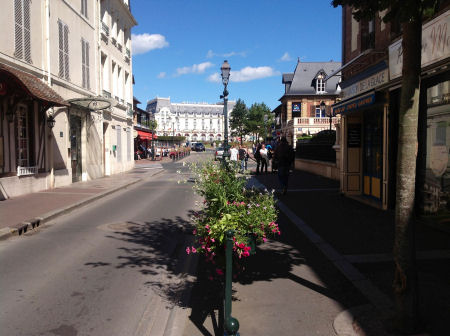
2. The Grand Hotel has a “bastardised Empire frontage” and a sweeping driveway (not gravel) in front of its steps, where cars park, although no longer the million pound line-up.
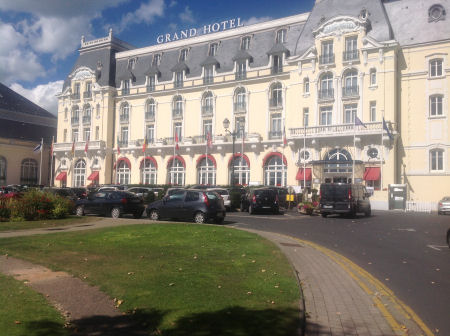
3. The hotel faces the Main Street (which is perpendicular to it) across the gardens. But it also has a sea frontage.
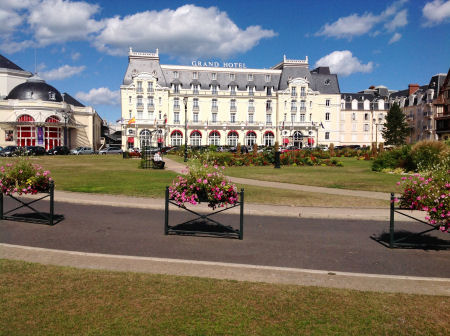
4. Next door to the Hotel is the Casino, which is very pretty with a “Negresco” dome.
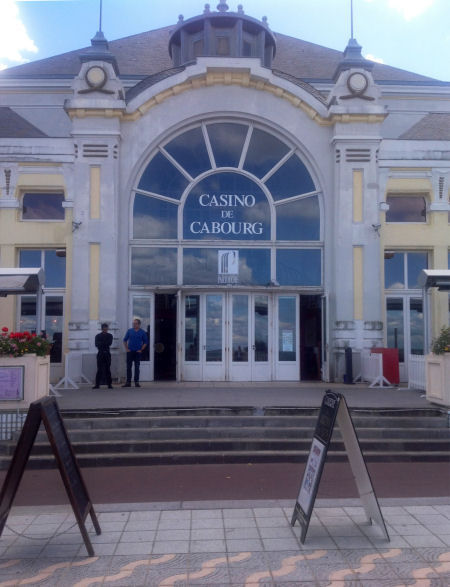
5. Cabourg was once a very fashionable resort – Marcel Proust spent his Summer holidays here and wrote ‘A La Recherce du Temps Perdu’ in the Grand Hotel. (You can stay in his room for a vast sum of money !). It was eventually overtaken by Deauville. Compare this with Royale and Le Touquet.
6. Cabourg is on an estuary correctly located (OHMSS) which leads up to Dives which was the port for Cabourg but is now silted up. This is referred to in Ch.1 of OHMSS – “…speeding northwards for their distant shelter up-river in the Viex-Port.”
7. Cabourg has a very long beech and the tide recedes a long way. See OHMSS Ch.1.
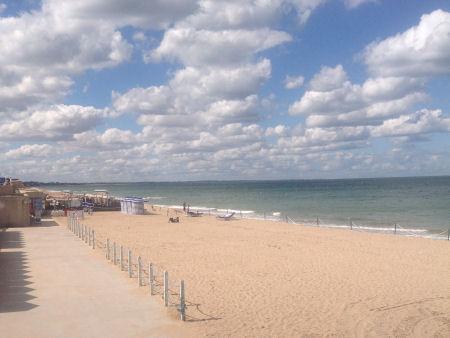
There is probably more I could write but that will do for start.
Would anyone like to comment?
David Salter has been an enthusiast for the books of Ian Fleming since he stumbled into James Bond, via Moonraker, at a rural railway station bookstall in 1956. This lifelong interest has resulted in a substantial collection of books, magazines, newspaper cuttings and ephemera. From 1964 to 1969 he lived at 27 Green Street, off Park Lane in London, the house where Fleming was born.





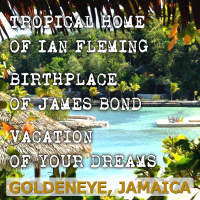
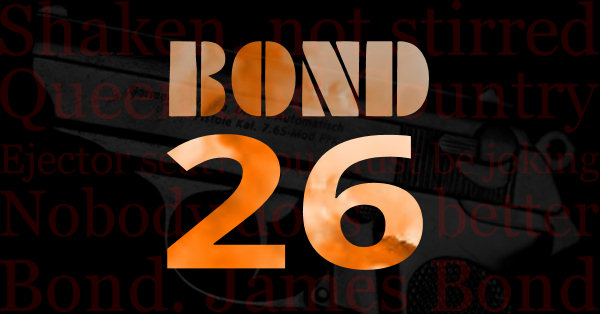




September 14th, 2020 at 12:51
Just read Casino Royale and On Her Majesty’s Secret Service. Very interesting info about Cabourg.
January 5th, 2021 at 14:42
Thanks to this article i now have added Cabourg to my long planned driving holiday to the south of France.
Clearly a tour that is some way off at the minute sadly!
Many thanks for the article.
June 9th, 2021 at 19:58
Interesting. Hadn’t considered Cabourg as an inspiration for Royale. As with a lot of things, Royale is probably an amalgam (Forges-les-Eaux for the name, Cabourg for the casino…). A detail I’d missed from previous readings of the book is a cable in chapter 1 (I think) which places Casino Royale squarely in the department of Seine-Inferieure (now Seine-Maritime), taking the location away from Cabourg. I’m pretty convinced that in OHMSS, Royale is a thinly veiled Le Touquet. The details are near spot on, down to the names of the plages. All that said, we’re never going to know for sure, but it’s a fascinating discussion!
June 22nd, 2021 at 16:25
It’s funny that you overlooked that, as I did too initially.